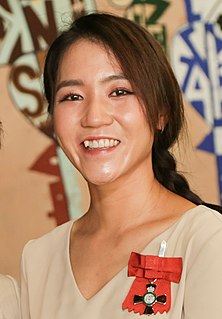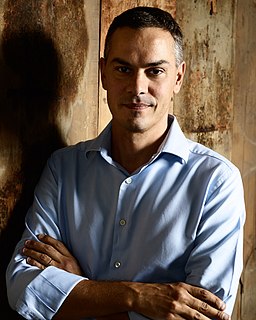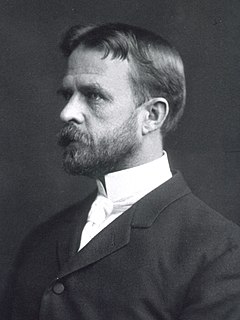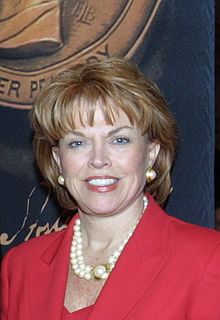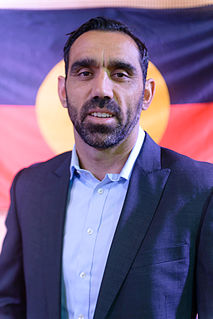A Quote by Jill Stein
Let me say, it's - what a commentary it is on American media that you have to go to Russian television in order to get covered as a candidate in this election. It's pretty outrageous. And our media could solve that in a heartbeat if they actually opened it up, you know, but they don't. So I think that's more commentary on the crisis in our media.
Related Quotes
The arrival of television established a mass-media order that dominated the last 50 years. This is a personal media revolution. The distinction between the old order and the new order is very important. Television delivered the world to our living room. In the old media, all we could do was press our noses against the glass and watch.
I have learned one thing, because I get treated very unfairly, that's what I call it, the fake media. And the fake media is not all of the media. You know some tried to say that the fake media was all the media, no. Sometimes they're fake, but the fake media is only some of the media. It bears no relationship to the truth.
I was on television a couple of years ago and the reporter asked me, "How does it feel being on mainstream media? It's not often poets get on mainstream media." I said, "Well I think you're the dominant media, the dominant culture, but you're not the mainstream media. The mainstream media is still the high culture of intellectuals: writers, readers, editors, librarians, professors, artists, art critics, poets, novelists, and people who think. They are the mainstream culture, even though you may be the dominant culture."
You witness the artists acting as witnesses, but they provide a point of view that's less monolithic. It's less official in a certain way. Many artists are speaking in the first person singular, as a reaction to dubbed-over media commentary. The thought is: "Enough with how we're represented by the media. Let me tell the story."
I think, ironically, the media's been good for America, but Trump's been good for the media. He's revitalized The New York Times and CNN - it's never had so much integrity and so much power ever, and that's because being attacked by constant authoritarians and fascists with an agenda has actually got them to sharpen up and to get back to base principles about what the media should actually be. It's also that the circulation boost has removed this horrible, incipient commercial pressure that compromises media.
That's because of everything the public interest and the media interest is focused on: What did Donald Trump know and when did he know it? Whether there was cooperation with the Russians. I don't mean to say that's a distraction or we shouldn't follow it up. But the underlying story of the Russians trying to subvert our democracy, both through propaganda, planted stories, manipulation of social media and through direct efforts to infiltrate our state election system, is really an enormously significant event. And it's not over.
My definition of media? 'Anything which owns attention.' This could be a game or, perhaps, a platform. Ironically, the media tends to associate media with publishing - digital or otherwise - which, in turn, is too narrow a way to consider not only the media but also the reality of the competitive landscape and media-focused innovation.
During the run up to the Iraq War, Mike Farrell and I did get on television kind of frequently, but then they saw that that didn't work. They really couldn't bait us into being stupid, so they stopped. You know the mainstream media, corporate media, avoids ever giving anyone who has anything to say a platform, if they can possibly help it.



